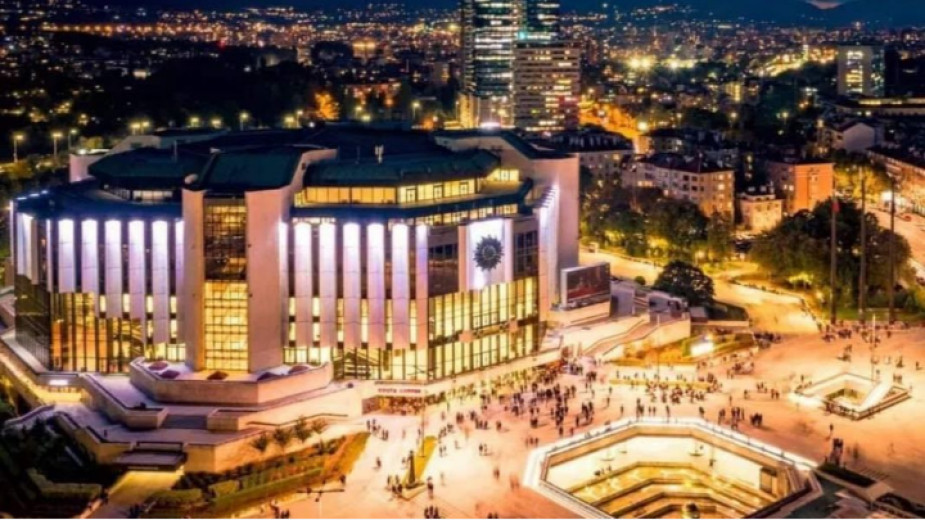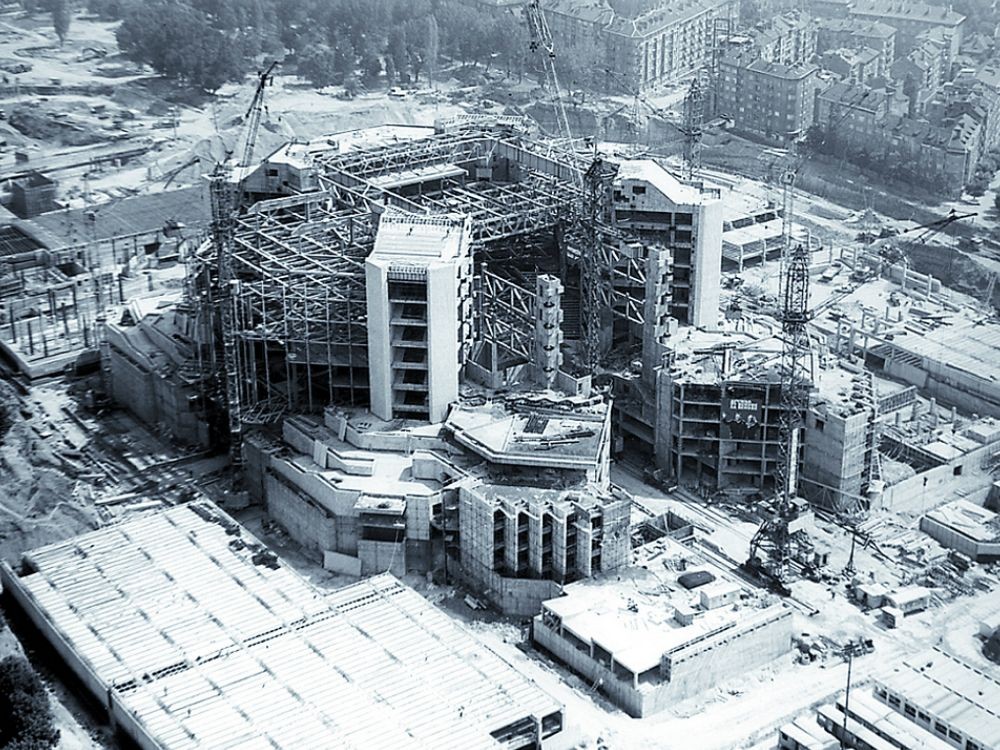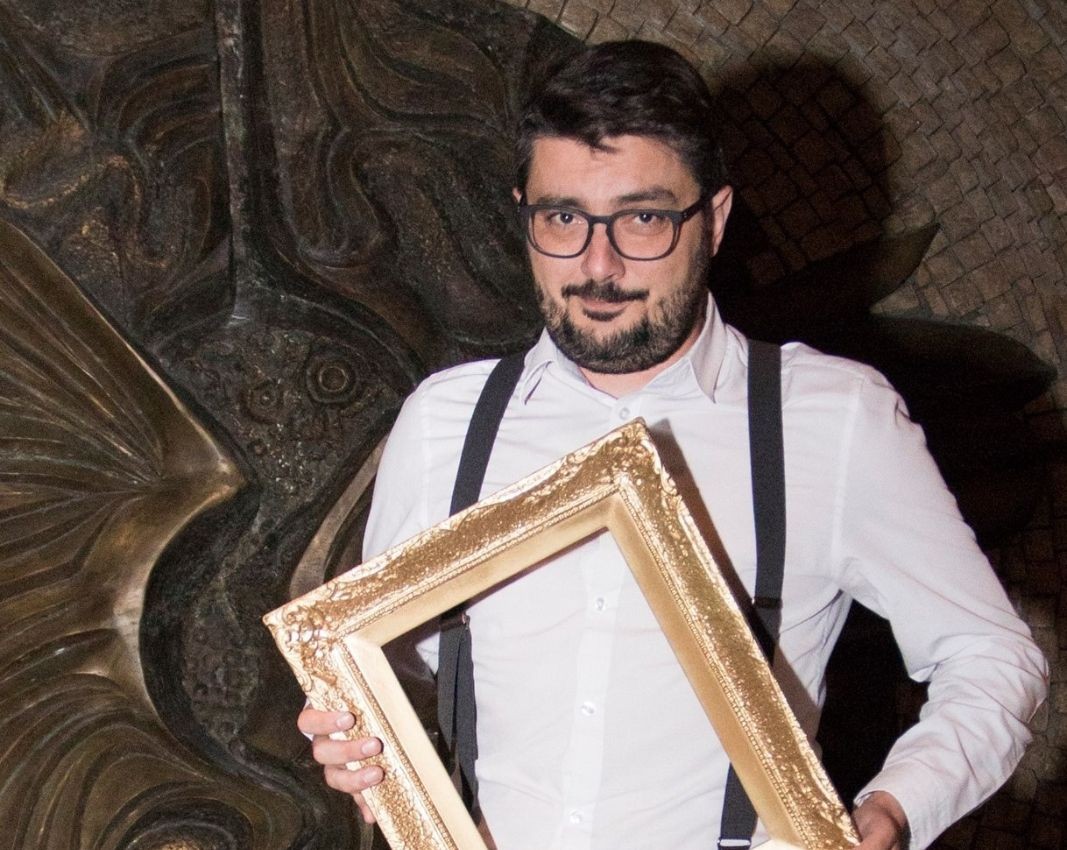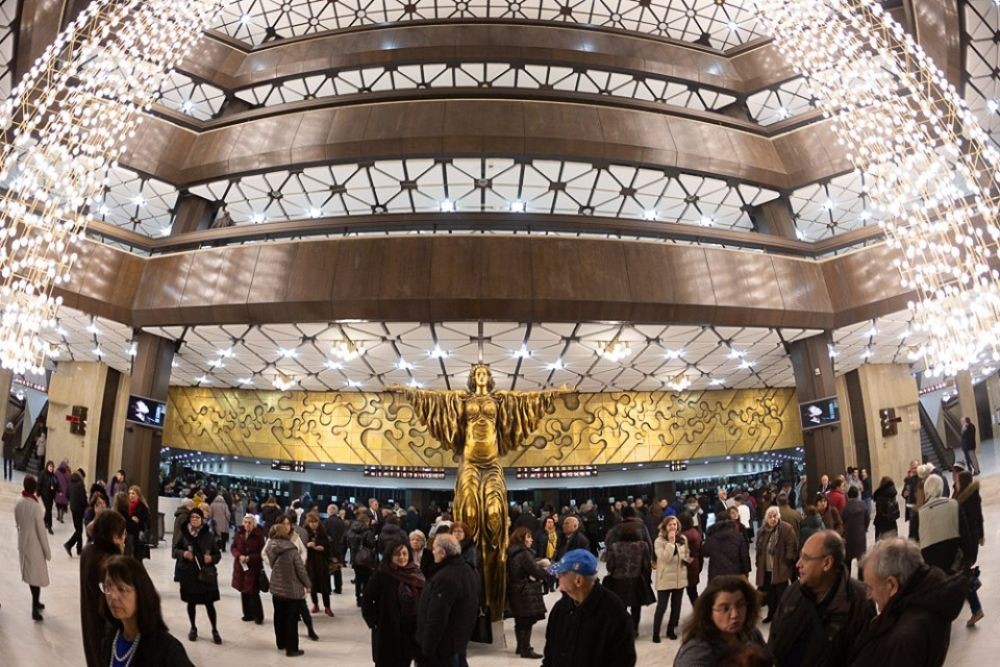 10
10
The National Palace of Culture (NDK), located in the heart of the capital Sofia, is the largest and most prestigious congress centre in Bulgaria. In the 1980s it was a model of a new era in the cultural industry.
But there is much more to it. In four decades the majestic building and the beautiful gardens around it have become a centre of gravity for meetings, cultural and sporting events and leisure activities for the citizens and visitors of Sofia. It is also the starting point of the central pedestrian zone of the city, part of Blvd. Vitosha.

NDK is an architectural monument of national importance. It was inaugurated in 1981 on the occasion of the 1300th anniversary of the founding of the Bulgarian state. Thousands of Bulgarian volunteers worked on the construction of the main building. However, there was still a shortage of workers, so construction labourers from Cyprus, Yugoslavia and Vietnam came to help.
"For me, even 40 years later, this is still the greatest building created by an entirely Bulgarian team led by architect Alexander Barov*. We are proud of the fact that all-Bulgarian materials have been used in the construction," said Ivo Chiflichki, designer of the National Palace of Culture team, in an interview with Radio Bulgaria.

NDK can be likened to a temple of all arts. The palace houses paintings, murals, metalwork, sculpture, wood carvings, etc. Since people are keenly interested in the mystique surrounding the NDK, I dare say that the palace is famous for the symbolism it carries. I want to assure that there is not a single symbol of the political era (socialism – ed.), during which it was built, in the entire building."

Interesting fact: more than 10,000 tons of steel were used to construct the central building. Light is a conceptual highlight of the project and Ivo Chiflichki tells us where in the building we can find evidence of this:

"In almost all of the more than 120 works of visual art we find inside, the main element is light, flames or fire, as well as the phoenix, which is on the original emblem of the palace, created by the artist Stefan Kanchev. The image can still be seen on all the doors in the building. In the central foyer is the statue "Revival", behind it we can see the metal sculpture "Flames" by Mikhail Benchev. The fresco in Hall 8 is called "Fire" and depicts most of our national heroes."
The NDK's present and future are integrally linked to the visitors, who find behind its walls an oasis to escape the hectic everyday life. Apart from the rich palette of events on the Palace's cultural calendar, the building will also be open for the curious to learn more about its history and the priceless artifacts it preserves.
"I hope that soon we will be able to delight tourists with the opportunity to explore the interior of the Palace as part of a guided tour - architect Ivo Chiflichki told Radio Bulgaria. I guarantee you that even 40 years later these works of art are intact and in excellent condition".

* A number of monumental buildings in Bulgaria testify to the talent of architect Alexander Barov, the most significant being the National Palace of Culture. The reconstruction of House No. 1 of the Boyana Residence, which has housed the National History Museum since 1999, is also his work. To him we also owe the construction of the Universiada sports hall.
English version: Elizabeth Radkova
Photos: ndk.bg, Facebook / Ivo Chiflichki, National Palace of Culture, So Sofia
In the beginning was… the puddle – without any provocation or wordplay on the bible. Because even the “most primitive” creation can sometimes ignite the divine spark. Mariangela Anastasova literally paints with “puddles of water”, that is..
This evening, the Sofia Opera and Ballet will present Richard Strauss’ electrifying Elektra to Turkish audiences as part of the 16th International Opera and Ballet Festival in Istanbul. Rooted in ancient Greek mythology, Richard Strauss’ powerful score..
In 2021, "The Route of Cyril and Methodius" became one of the 48 European cultural routes , and the Cyrillo-Methodian literary, cultural, and religious tradition received yet another recognition as an inseparable part of the cultural heritage of the..

+359 2 9336 661
